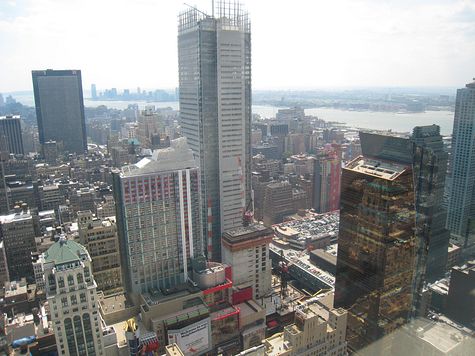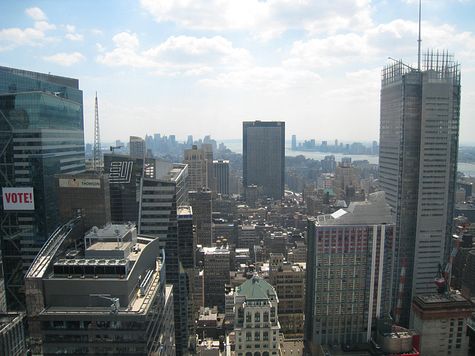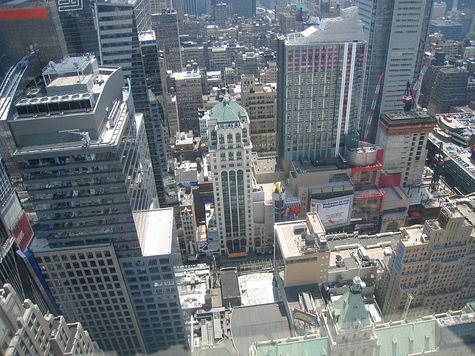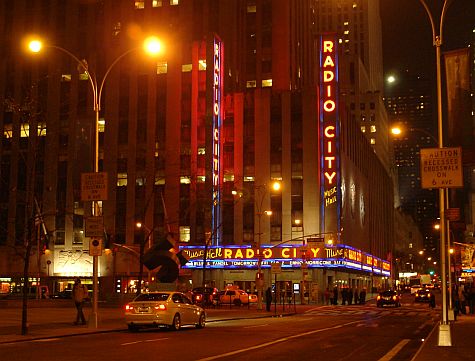A one-day business trip from Toronto to NYC was unusual in that every connection ran on schedule.
In my current day job, I probably spend the majority of the days at home at my desk. When I do client interviews, I try to schedule two to three days in one place, and stay in a nearby hotel. It’s a rare occasion when I do a day trip, boarding a plane in the morning, and returning that evening. The flight from Toronto to New York is scheduled at 95 minutes, so making two customer calls in one day is feasible. I’ve never been in the Chelsea neighbourhood before, but precise directions to a taxi driver dropped me off at 8th Avenue and 11th Street. Looking south, the buildings seem to be a few stories high, with a few skyscapers thrown in.
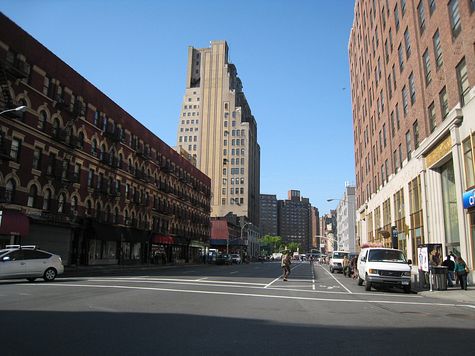
Greg called me on my mobile phone, and we met up. As a good sales person, he knows the preferences of his clients. Our first call was on an executive who isn’t a fan of bagels, but really likes donuts. Thus, we stopped by Donut Haven to pick up a fresh assortment.
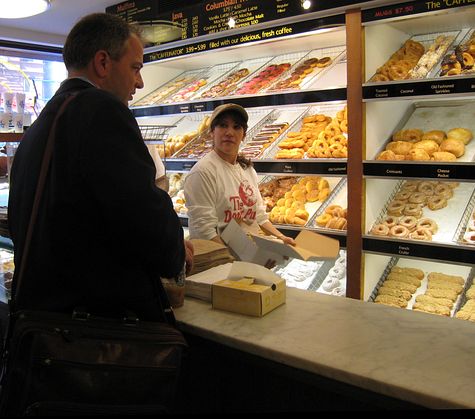
We went on the customer call, and then headed northbound on the fastest mode of transportation: the New York City subway. Greg’s home is in Providence, RI, so he says he doesn’t really know the subway lines. By a strange coincidence, all of his clients and the office are all on the E line, so he doesn’t gets lost. Continue reading “2008/05/14 One day in New York: Chelsea to Times Square“

